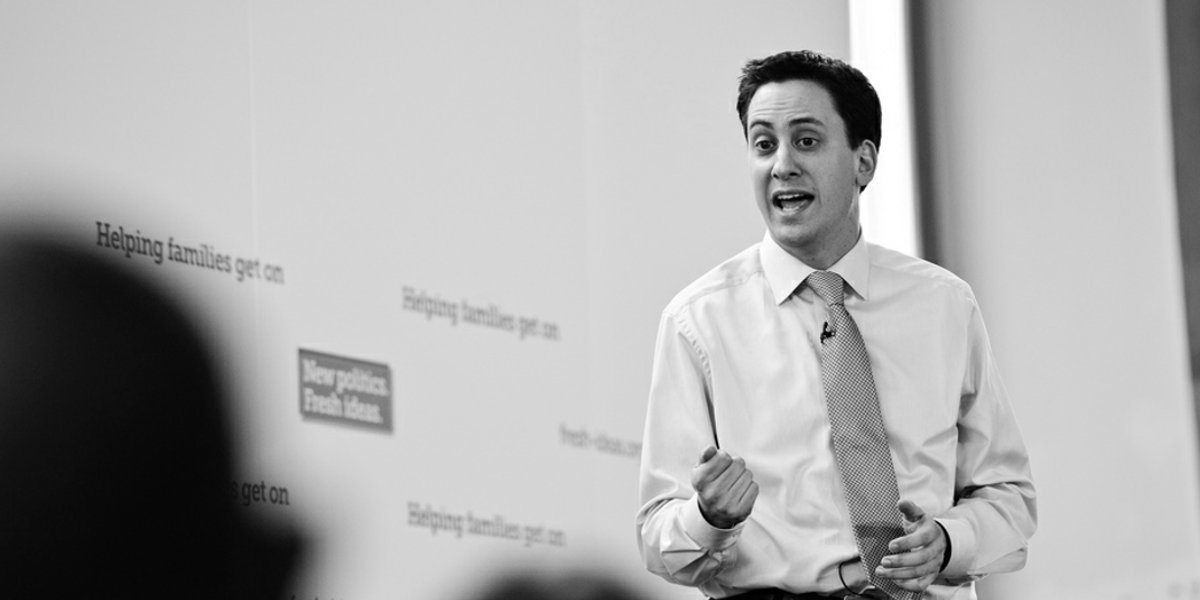His own man: Why the Daily Mail is wrong
New polling yesterday shows that the majority of the public back Ed Miliband over the Daily Mail's claim that his father Ralph was the ‘man who hated Britain’. As debate over the issue continues, it strikes me that the preposterous...
New polling yesterday shows that the majority of the public back Ed Miliband over the Daily Mail’s claim that his father Ralph was the ‘man who hated Britain’. As debate over the issue continues, it strikes me that the preposterous subtext of the Mail’s now-infamous headline is that if Miliband senior was a dangerous Marxist, so must be his son.
If we’re lucky, our fathers teach us sound values. They teach us to be kind, to stand up to injustice, to be open-minded, to question and to think for ourselves. That seems to be the job Ralph achieved with Ed and David. What they don’t do is transplant, like DNA, their political views and way of life into their offspring. If they did, Barack Obama would be herding goats and John Major swinging from a trapeze.
The attacks on the ‘Marxism’ of Ralph Miliband are nothing new. It was the Daily Mail who gave us the forged Zinoviev Letter in 1924, which cost Labour a general election. The right-wing press been running scare stories about Labour leaders with snow on their boots ever since. Michael Foot bought a new kitchen for his Hampstead home with the legal damages from a libel case against the Sunday Times, when they absurdly claimed he was a Soviet agent.
There have been ‘Marxists’ in the Labour Party since it was founded (I’m not talking about Leninist infiltrators, or the tiny handful of Soviet apologists, but those who have read and understood Marx). Harold Laski, a longtime member of the Labour NEC, was a Marxist. Aneurin Bevan never eschewed his own Marxist background. Anyone with half a brain, and an understanding of the traditions and currents of European social democracy, must acknowledge the towering presence of Marx and Engels, without falling into doctrinaire allegiance.
Like Laski, who was his tutor at the London School of Economics (LSE), Ralph Miliband was a Marxist, but not a revolutionary communist, or a Trotskyist. He used the methodology of Marxism to interpret the world around him, which led him to criticise dictators and despots of left and right, be they the fascists in Portugal, Spain, Chile or Greece, the apartheid regime in South Africa, or the Soviet bloc. He was especially vocal in his condemnation of the Soviet repression of the Prague Spring in 1968, and the crushing of Dubcek’s ‘socialism with a human face.’
The book that made Ralph Miliband his name, Parliamentary Socialism appeared in 1961. It argues that Labour’s obsession with parliamentary democracy meant that it had forgotten that it was founded to change, not become part of, the system. His critique of the Labour Party as a “party of modest reform in a capitalist system within whose confines it is ever more and by now irrevocably rooted” did not mean that he gave up all hope in the Labour Party. As the only party anchored in the organised working class, through the unions, he saw it as the least worst option.
In an unpublished pamphlet for the Fabian Society, written in the late-1950s, Ralph Miliband describes the socialism of his tutor Laski:
“The purpose of social organisation is to secure to each member of society the fullest opportunities for the development of his or her personality, subject only to the impediment of natural aptitude and ability. Such a society presupposes the recognition of rights to each of its members. Among those rights, the right of free speech and of assembly, of equality before the law, irrespective of race, colour and creed, must obviously figure high. But, Laski insisted, to these must be added other, scarcely less important rights, such as the right to work and to earn an adequate wage, to leisure and to education, to protection against insecurity, sickness and old age, as well as the right of the workers to share in the management and control of their enterprise.”
These tenets could easily be ascribed to Miliband’s own ideas of a liberal, humanist socialist society. It hardly needs adding that this view of socialism is as far removed from the communism of the Soviet Union as chalk is to cheese.
Ed Miliband is not a Marxist. He sits in the mainstream of Labour revisionism, in the tradition of Tony Crosland. He has deep-seated values that he applies to the problems of the age, such as climate change. He slots neatly into a line of Labour leaders which might include Clement Attlee and Hugh Gaitskell. He sees parliamentary democracy as the only route to social change, but understands that society is shaped by other, powerful forces which have to be challenged or tamed.
Ed Miliband uses evidence to shape his view of policy, which is the fundamental Fabian methodology handed down to us by the Webbs. Ed, like Ralph, wants a better world and an end to the crimes and catastrophes which blight human existence, from poverty to oppression.
But when it comes to political method, father and son differ utterly. Ed’s decision to enter the world of Labour politics was his own. He is his own man.
